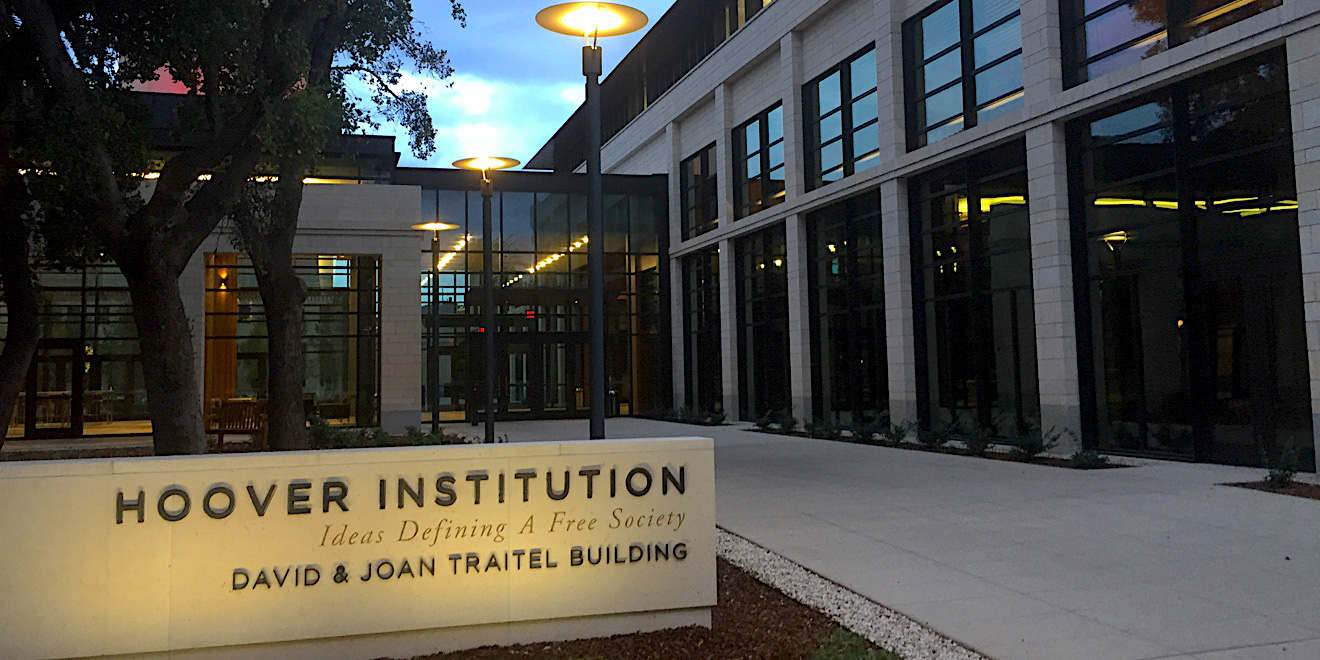The mission statement of the Hoover Institution is very plain — their work is premised on the belief that the actions of the federal government should be limited and that the “free market” is the sole best vehicle for progress and freedom.
While one may not agree with those beliefs, the Hoover Institution is of course free to do its work to fulfill its mission.
Where we enter into conflict is that partisan think-tanks are not universities, nor vice versa. The premise of universities is that knowledge should be pursued no matter where that pursuit leads — there should be no restriction on research, no matter how inconvenient the truth is to one’s ideological commitments.
The fact that the Hoover is looking for knowledge that confirms its beliefs means that it cannot be impartial. Universities must be impartial by definition. Neither can universities be partisan — that would be a terrible breach of academic freedom. There is no such thing as “guided research.” The “thinking” at the Hoover is channeled toward confirming an already existing belief.
The Hoover argues that it should be more present in the teaching mission of the University. What would it look like in a classroom if a professor said, “Please run an experiment and make sure it shows that climate change is not serious,” or “that the free market is the best way toward freedom”? The fact that no responsible and ethical teacher would ever do that, but that scholars at Hoover are by definition committed to re-prove ad nauseam the same basic theses, makes me feel that there is a marked difference between “them” and “us,” most especially when it comes to Hoover fellows in the classroom.
Some, like my colleague Russell Berman, argue that it is important to have a diversity of opinions, and that it would be important to have the Hoover more engaged in the Stanford classroom in terms of “diversifying” the classroom. I do not accept that argument. Why? Besides the reason I just mentioned, the Hoover has proven itself willing to skew and bend and ignore facts in order to promote its brand of knowledge, and in ways that flagrantly go against science and the public good.
Not only Scott Atlas, but also others at the Hoover Institution have promoted a return to work and school, making the arguments that the economy needs to be set right, and that students are losing potential income benefits by staying out of school, and that the effects of the pandemic have been overstated. These not only promote the belief that the market is the best solution to all our problems, but also indicate a troubling echo of what President Trump has been arguing for purely political reasons, and often based on Hoover research.
This for me is the crux of the question, a question that warrants a full and sustained and substantial discussion by the Stanford Faculty Senate. But there is another reason we need to have a very serious discussion:
The Hoover has proved itself willing to purposefully endanger students and faculty in other ways besides encouraging them to submit to the logic of “herd immunity” — the debacle of its attempt at “free speech” led a Hoover fellow (held up as an example of its superb work in the area of history) to propose background research on the personal lives of students whose viewpoints he and his side of “Cardinal Conversations” disagreed with (bizarrely, Niall Ferguson and John Rice-Cameron claimed they did so to guarantee an “open debate”).
Our former provost, John Etchemendy, strongly condemned the “politicization” of the University. Integrating into Stanford further a set of fellows committed to advancing a specific political position in their scholarship and its intended public purposes calls the question as to whether or not we should be concerned as well in this specific case.
David Palumbo-Liu, Louise Hewlett Nixon Professor
Contact David Palumbo-Liu at palboliu ‘at’ stanford.edu.
The Daily is committed to publishing a diversity of op-eds and letters to the editor. We’d love to hear your thoughts. Email letters to the editor to eic ‘at’ stanforddaily.com and op-ed submissions to opinions ‘at’ stanforddaily.com.
Follow The Daily on Facebook, Twitter and Instagram.
